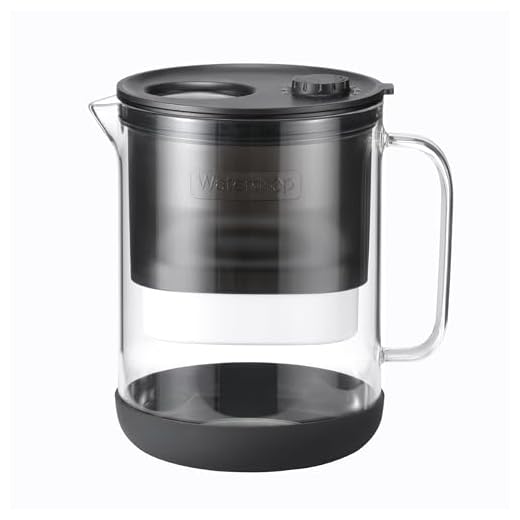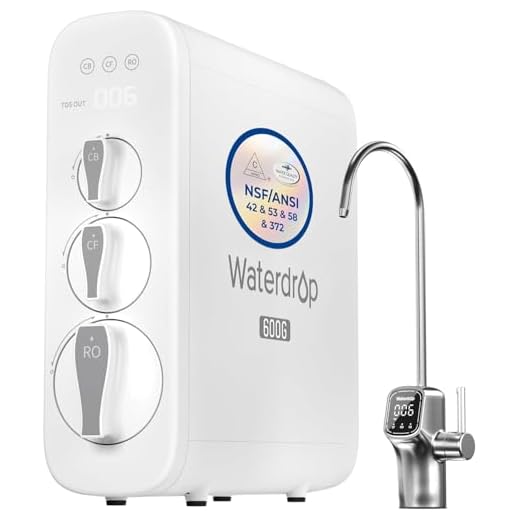




Environmental Considerations
The choice to drink filtered water has significant ecological implications. Utilizing a home filtration system reduces reliance on single-use plastic bottles, which contribute heavily to landfill waste. By filtering tap water, individuals minimize plastic consumption and help combat the growing pollution crisis linked to discarded plastic containers. Furthermore, reducing the demand for bottled water lessens the strain on water resources and decreases energy used in production and transportation.
Choosing filtered water also promotes responsible environmental stewardship. Many filtration systems focus on removing pollutants such as chlorine, lead, and other contaminants, ensuring cleaner water without harmful byproducts. This shift not only benefits personal health but also supports the broader goal of maintaining water quality in local aquifers and ecosystems. As consumers become more aware of these environmental impacts, the trend toward filtered water choices continues to grow, reinforcing a commitment to sustainability.
The Ecological Impact of Choosing Filtered Water
Choosing filtered water significantly reduces plastic waste in the environment. By opting for filtration systems at home, individuals decrease the reliance on single-use plastic bottles, which often end up in landfills and oceans. This shift not only alleviates the pollution associated with plastic manufacturing but also lessens the overall carbon footprint, as fewer resources are consumed in producing and transporting bottled water.
The production and distribution of bottled water consume vast amounts of energy and water. In contrast, filtered water taps into existing municipal supplies, minimizing the energy used for transportation. Additionally, many filtration systems utilize sustainable materials, further decreasing their environmental impact. As more people embrace this approach, the cumulative benefits for the planet can be substantial, leading to a more sustainable water consumption model.
Cost-Effectiveness
When comparing various water options, the financial benefits of filtered water become clear. Investing in a home filtration system often proves to be more economical than consistently purchasing bottled water. Over time, the expenses associated with bottled water, which include not only the price of the bottles but also their environmental cost, can accumulate significantly.
In addition to the upfront cost, maintaining a filtration system tends to be inexpensive. Many filtration systems require only periodic filter replacements, which are often less costly than buying cases of bottled water. This approach not only saves money but also promotes sustainable practices by reducing plastic waste. With filtered water, households can enjoy an endless supply of clean and safe drinking water without straining their budgets.
Comparing Filtered Water to Bottled Options
Filtered water often emerges as a more economical choice compared to bottled water. Purchasing bottled water consistently can lead to significant long-term expenses, particularly for those who regularly seek hydration on the go. In contrast, investing in a home filtration system typically incurs a one-time installation cost and minimal ongoing expenses for filter replacements. This financial efficiency is crucial for households aiming to manage budgets wisely while ensuring access to clean drinking water.
Additionally, the environmental impact of choosing filtered water over bottled options cannot be overlooked. Bottled water contributes to plastic pollution, with millions of plastic bottles ending up in landfills and oceans each year. The production and transportation of bottled water further exacerbate carbon footprints, while home filtration systems reduce waste and reliance on single-use plastics. This choice supports sustainable practices and encourages a more environmentally conscious lifestyle.
Convenience and Accessibility
Having a home filtration system provides an easy and efficient way to access clean water at any time. You can fill up a glass or a water bottle without the hassle of going to the store or dealing with the limitations of bottled options. This convenience encourages more frequent hydration, benefiting overall health.
Filtered water systems also eliminate the need for single-use plastic bottles. By relying on a filtration unit, you contribute to reducing plastic waste significantly. The accessibility of filtered water makes it a more sustainable choice, supporting not only individual health but also positively impacting the environment.
The Advantages of Having a Home Filtration System
Having a home filtration system provides an easy and convenient way to ensure that your drinking water is safe and clean. With the ability to filter out contaminants such as chlorine, lead, and heavy metals, these systems can significantly improve water quality. Home filtration also eliminates the need for purchasing bottled water, reducing both packaging waste and frequent trips to the store.
The long-term financial benefits cannot be overlooked. Although there may be an initial investment for equipment and installation, the savings accrued from avoiding bottled water purchases can add up over time. Additionally, many filtration systems are designed to maintain low operating costs, making them an economical choice for households focused on both health and budget.
FAQS
What are the main health benefits of drinking filtered water?
Drinking filtered water can help remove contaminants such as chlorine, lead, and bacteria, leading to improved overall health. It can also enhance hydration and promote better digestion when the water is free from impurities.
Is filtered water better for my health compared to tap water?
Filtered water is often considered healthier than tap water because it removes many harmful substances that may be present, such as heavy metals and chemical residues. However, the quality of tap water can vary by location, so it’s important to know your local water quality.
Can filtered water improve the taste and smell of my drinking water?
Yes, filtered water typically has a better taste and smell compared to tap water. Filters can eliminate chlorine and other unpleasant odors, making drinking water more enjoyable.
How do home filtration systems compare to bottled water in terms of health benefits?
Home filtration systems can provide a more sustainable and cost-effective option compared to bottled water. They reduce plastic waste and often deliver cleaner water without the contaminants that may be found in some bottled water.
Do all water filters remove the same types of contaminants?
No, not all water filters are created equal. Different filters target different contaminants. It’s important to choose a filtration system that meets your specific needs and is certified to remove the contaminants present in your water supply.
Related Links
Why You Should Consider Filtered Water for Children’s Health
What Role Do Water Filters Play in Preventing Illness?
Roundup of Health Benefits from Various Types of Water Filters
Water Filters Reviewed: Benefits for Health Conscious Consumers
7 Health Benefits of Using Water Filters You Should Know
